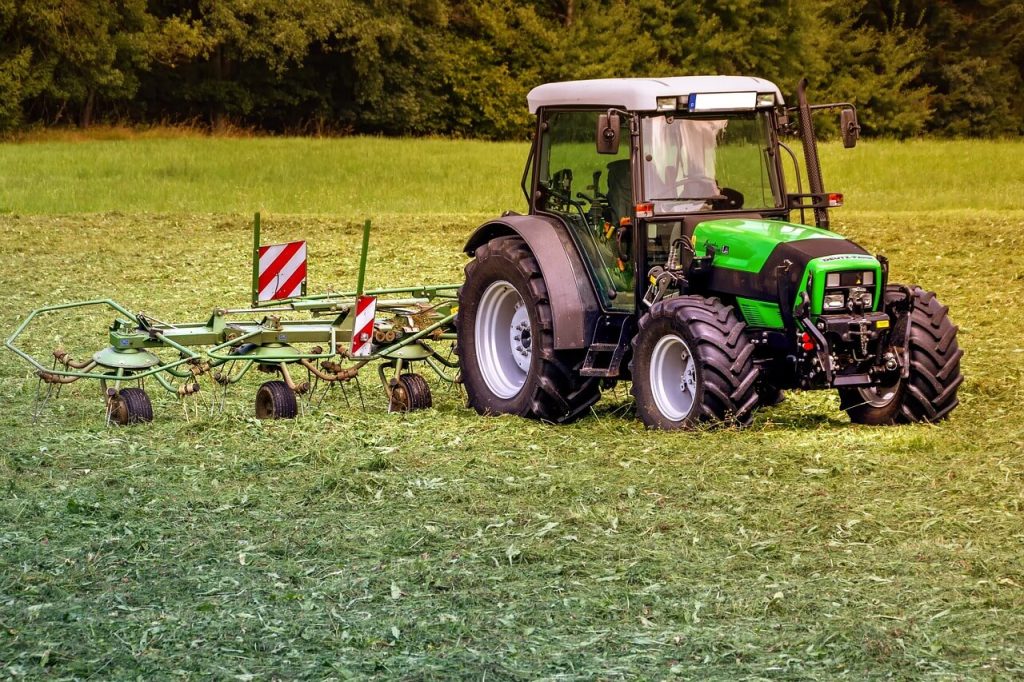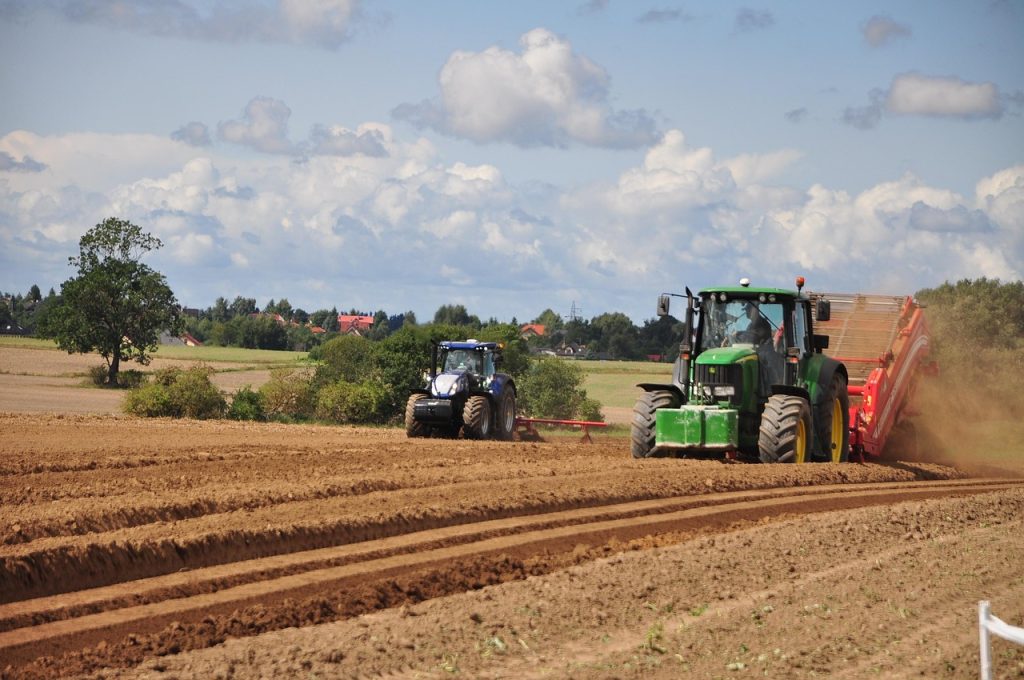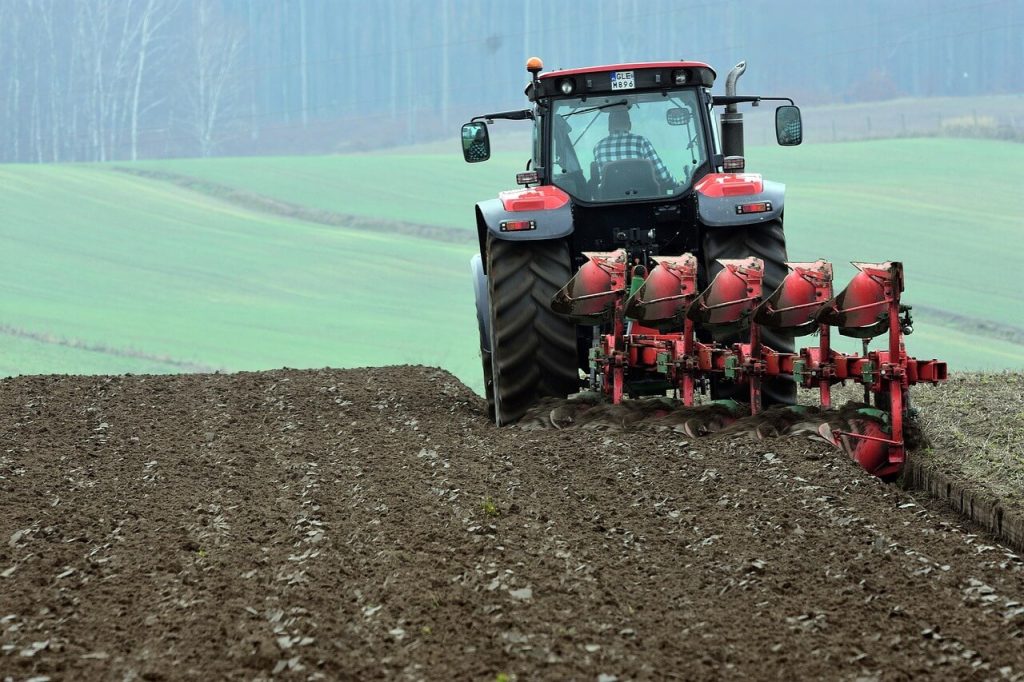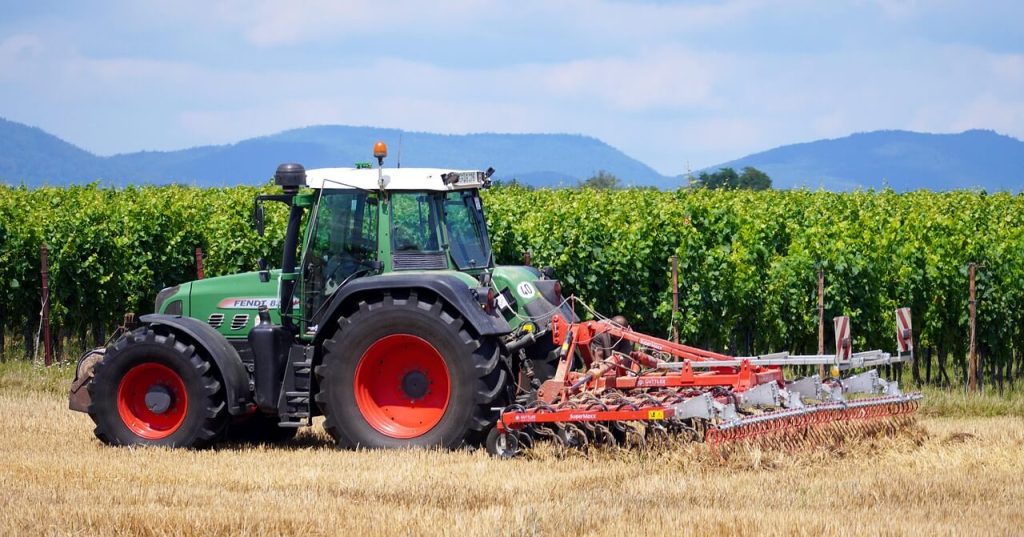With advancements in agricultural technology, there is a growing demand for equipment that balances efficiency with operator comfort. Farmers often work long hours in harsh conditions, so machinery must not only perform exceptionally well but also prioritize operator health. Cabin-Type Cultivation Equipments provide operators with a safe and comfortable environment, offering a solution to these challenges.
Despite technological advancements, farmers still face challenges such as extreme weather and long working hours. These conditions can lead to health issues and reduced productivity, thereby impacting the overall efficiency and profitability of the farm.
More importantly, cab-mounted tractors can enhance farm productivity while minimizing health risks, making them an ideal choice for modern agriculture. Continue reading to learn more about their advantages.
Contents
1. Improving the Working Environment for Operators
Eliminating Exposure to Harsh Weather
Challenge:
Farmers working in extreme heat, cold, or rainy conditions are at risk of heat stress, hypothermia, and exposure to harmful chemicals such as pesticides. These conditions make long working hours difficult and can affect both productivity and the health of operators.
Solution:
Cabin-type equipment offers a controlled, climate-regulated environment that protects operators from extreme weather. These systems ensure that farmers are shielded from heat during the summer, cold in winter, and moisture during rain, allowing them to focus on their tasks without the distractions of uncomfortable or unsafe conditions. These tractors are designed with advanced heating and cooling systems, air conditioning, and proper insulation that maintain a comfortable interior temperature regardless of external weather conditions.
Enhanced Comfort and Safety
Challenge:
Prolonged exposure to poor ergonomic conditions in open-cab tractors can cause fatigue, back pain, and other long-term health issues. Farmers often have to work for long hours in cramped spaces, which can lead to discomfort and eventually serious health problems.
Solution:
Modern cabin-type tractors are equipped with ergonomic seats and advanced suspension systems that absorb shocks and reduce vibrations, significantly enhancing comfort during long hours of operation. These tractors also have climate control systems that provide heating or air conditioning to maintain an optimal working environment. Noise-reduction features further reduce operator fatigue by minimizing engine noise, creating a quieter environment, and enhancing focus. Moreover, the design of the cabin allows for a more spacious working area, improving accessibility to controls and reducing physical strain.

2. Boosting Efficiency and Productivity in the Field
Reduced Downtime and Increased Work Hours
Challenge:
Farmers often experience downtime due to weather disruptions, such as heavy rain, snow, or extreme temperatures, which can prevent them from fully utilizing available daylight hours. During peak seasons like planting and harvesting, any interruptions can lead to delayed schedules, ultimately impacting the overall crop yield and farm profitability.
Solution:
With a cabin-type tractor, farmers can extend their working hours without being hindered by inclement weather. The enclosed cabin shields operators from the elements, providing a controlled environment where they can work comfortably and continuously, regardless of external conditions. Whether it’s a hot summer day or a chilly morning, cabin-type tractors offer climate control and insulation that keeps the operator comfortable, allowing them to work for longer periods without experiencing fatigue or discomfort.
Optimized Control and Accuracy in Operations
Challenge:
Operating agricultural machinery in open environments can often lead to distractions, poor visibility, and environmental factors (e.g., dust, wind), all of which reduce the precision of farming operations. This can cause mistakes, inefficiencies, and wasted resources, especially when performing tasks like planting, fertilizing, or harvesting.
Solution:
Cabin-type equipment is designed with advanced technologies such as GPS systems, intuitive control panels, and enhanced visibility features, providing operators with the tools they need to manage machinery with greater precision. GPS integration allows for automated steering and guidance, ensuring accurate planting and fertilization patterns, while intuitive controls make operating the machinery easier and less error-prone. The enclosed cabin also offers improved visibility, which helps operators stay focused on their tasks, even in challenging weather or light conditions.

3. Enhancing Farm Management and Decision-Making with Technology
Integration of Precision Farming Tools
Challenge:
Traditional farming methods often lack the tools to gather and analyze data in real time, making it difficult for farmers to monitor field conditions accurately. Without proper data, farmers can miss opportunities to optimize their operations, leading to suboptimal input usage, higher costs, and inefficient crop management.
Solution:
Cabin-type tractors equipped with precision farming tools address these challenges by integrating advanced technologies such as real-time data tracking, GPS, and field mapping systems. These tools enable farmers to gather valuable information on soil conditions, crop health, and weather patterns. For example, GPS systems provide accurate location data for optimal planting and harvesting, while sensors measure soil moisture and nutrient levels, helping farmers adjust their practices in real-time to ensure optimal crop performance.
Remote Monitoring and Diagnostics
Challenge:
One of the significant issues in modern farming is the inability to detect machinery malfunctions or inefficiencies until they cause significant damage or downtime. Malfunctions in critical systems, such as the hydraulic or fuel systems, can lead to costly repairs, extended downtime, and disrupted operations, especially during busy planting and harvest seasons.
Solution:
Modern cabin-type tractors are often integrated with remote monitoring and diagnostic systems that allow farmers to track the performance of their machinery from a distance. These systems continuously collect data on various aspects of the tractor’s performance, such as engine temperature, fluid levels, and pressure readings. Alerts can be sent to the operator or the farm manager in real-time if any abnormalities or inefficiencies are detected, enabling early intervention before a minor issue escalates into a significant failure.

4. Reducing Environmental Impact
Fuel Efficiency and Reduced Emissions
Challenge:
Fuel waste and excessive emissions are a major concern for traditional farming equipment. These issues not only drive up operational costs but also contribute to environmental degradation. In today’s agricultural landscape, where sustainability is increasingly important, there’s a growing demand for equipment that can reduce fuel consumption and lower harmful emissions, such as carbon dioxide (CO2) and nitrogen oxides (NOx). Furthermore, inefficient fuel usage can reduce the overall productivity of the farm and increase the carbon footprint, which conflicts with global efforts to reduce environmental impact.
Solution:
Cabin-type tractors are designed with more fuel-efficient engines that optimize fuel use, reducing the overall consumption of diesel or other fuels. These tractors also often feature improved aerodynamics, which reduces drag and makes the machinery more fuel-efficient. Additionally, many modern cabin tractors are equipped with technologies designed to reduce emissions, such as selective catalytic reduction (SCR) systems and exhaust gas recirculation (EGR) systems. These technologies help lower the amount of nitrogen oxides and particulate matter released into the atmosphere, ensuring that the tractors meet environmental regulations without sacrificing performance.
Impact:
The fuel efficiency of cabin-type tractors translates into less fuel consumption, resulting in cost savings for farmers, particularly over long-term use. Lower fuel usage also means a reduction in greenhouse gas emissions, contributing to a cleaner and more sustainable farming operation. By reducing harmful emissions, farmers are not only meeting stringent environmental regulations but also playing a part in global efforts to reduce air pollution and combat climate change. This makes cabin-type tractors an environmentally responsible choice for farmers looking to both save on operating costs and improve the environmental footprint of their operations.

5. Long-Term Economic Benefits for Farmers
Increased Productivity Leads to Higher Profits
Challenge:
Farmers often face challenges when working in harsh conditions, such as extreme temperatures or rainy weather, which can lead to downtime and slow operations. These conditions make it difficult for operators to maintain long hours in the field, limiting the overall output of their farming operations. As a result, productivity is reduced, and the ability to maximize profits from crop production becomes more difficult.
Solution:
Cabin-type tractors provide a controlled and comfortable environment for operators, allowing them to work longer hours without being affected by adverse weather conditions. With features such as climate control, soundproof cabins, and ergonomic designs, operators can stay comfortable, focused, and productive throughout the day. By reducing the impact of weather on the operator’s well-being and performance, these machines enable farmers to extend work hours during critical planting, cultivation, and harvest seasons.
Impact:
Increased working hours lead to higher overall productivity, with farmers being able to complete tasks faster and more efficiently. This boost in efficiency results in higher crop yields and improved farm management practices. The higher return on investment (ROI) is achieved through better utilization of farm labor, more productive workdays, and greater overall output. By investing in cabin-type equipment, farmers can improve their profitability while maintaining sustainable farming practices.
Lower Maintenance Costs
Challenge:
Frequent maintenance issues and expensive repairs can erode profits. Over time, poorly maintained machinery tends to break down more often, leading to costly repairs, extended downtimes, and the need for part replacements. These costs quickly add up, especially during peak farming seasons when equipment failure can significantly disrupt operations. Farmers may also find themselves continually investing in machinery that only lasts a few years due to poor design or quality.
Solution:
Cabin-type tractors are often built with high-quality, durable components designed for longer lifespans. These tractors use advanced technology to enhance their reliability, which reduces the frequency of repairs and part replacements. Additionally, these machines come equipped with predictive maintenance technology that allows farmers to monitor the health of their equipment in real-time. This system can alert farmers to potential issues before they become costly breakdowns, enabling timely repairs that can prevent major failures.
Impact:
By using cabin-type tractors, farmers benefit from reduced repair and maintenance costs. Predictive maintenance systems ensure that farmers are proactive in addressing minor issues before they evolve into expensive problems. With fewer breakdowns, less downtime, and fewer repairs, farmers can keep their equipment running longer while minimizing unexpected costs.
Conclusion
Cabin-type cultivation equipment plays a pivotal role in addressing many of the challenges farmers face today. By providing a safe and comfortable working environment for operators, these machines help improve safety, reduce exposure to harsh weather conditions, and increase productivity by allowing farmers to work longer hours. Additionally, with integrated advanced technology such as GPS, climate control, and remote monitoring systems, cabin-type tractors enhance farm management, precision, and efficiency. This combination of operator comfort and cutting-edge technology contributes significantly to more effective and sustainable farming practices.
As modern agriculture evolves, the benefits of cabin-type cultivation equipment become even more apparent. By investing in high-quality equipment like MINNUO’s cabin-type tractors, farmers can not only improve their operational efficiency but also enhance their overall productivity while reducing downtime and maintenance costs. MINNUO’s commitment to providing durable, technologically advanced machinery supports farmers in creating more sustainable and future-ready farming operations. Embrace the long-term benefits of cabin-type equipment and see how it can help drive innovation and efficiency on your farm.

